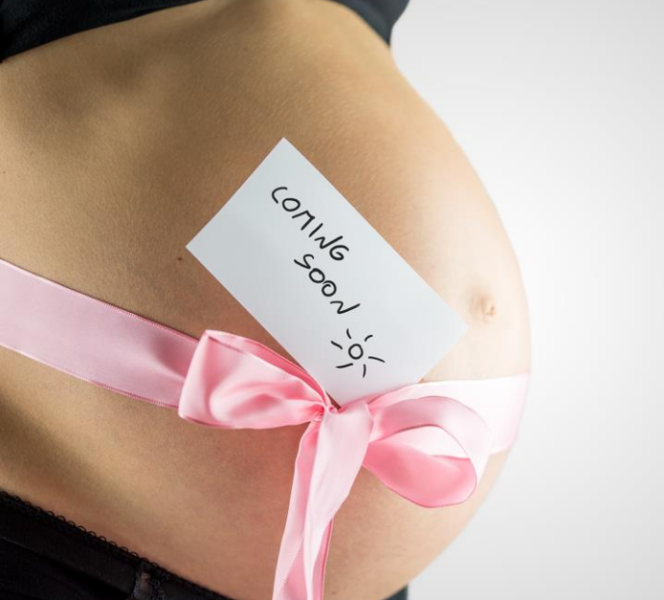The first month earliest signs of pregnancy notice common symptoms of early gestation but not yet appreciate any physical alteration. We tell you what are the first steps to begin to take care of your 1st Month first signs of pregnancy.

The First Month Pregnancy Symptoms is the most important cramps during pregnancy. You’ll notice the first own symptoms and physical changes such as increasing your breasts or other changes like for example a more sensitive sense of smell, the uterine wall thickens, cervix softens and placenta and umbilical cord begin to form. First, spotting during pregnancy the most important thing is to confirm your suspicions and once you know that you are in your early in pregnancy must take into account a number of tips for overcoming the first month of pregnancy without problems.
The First Month Pregnancy Symptoms
- The delay of menstruation is the first objective sign of pregnancy. However, there are many women with irregular periods and even periods of amenorrhea (absence of menstruation spontaneous), which actually is not one of the most reliable signs.
- The breasts are more painful: increases in volume and are more sensitive. Most likely soon you have to change your bra size.
- You feel sick to the stomach wake.
- During the day you have nausea and even vomiting.
- You feel (more) tired than usual.
- Have a different vaginal fluid.
- You can get out some acne.
- You suffer heartburn and can not stand many foods.
- Do not tolerate certain smells.
- Your appetite varies: either do not feel like eating or you can not control your hunger.
- You experience mood changes (positive or negative) based on hormone action.
- You are more irritable or you become hypersensitive.
Confirmation of pregnancy
At the pharmacy, I can get pregnancy tests with up to 99% reliability, plus the biggest advantage is that you can get an instant result. These tests allow testing about 10 or 12 days after conception, or a few days after the first missed a period (minimum three days) and thus confirm whether or not you are pregnant.
Related Article : Joint Pain During Pregnancy
And you can go to the lab to ask your gynecologist analytical. It is the only way to be sure of the result to 100% but will have to wait a few days to know the outcome.
The evolution of the baby during the first month of pregnancy
During the first month of pregnancy we can say that the baby begins to develop:
- The fertilized egg or zygote implants itself in the uterine lining.
- In four weeks the baby already has heart and stomach: organogenesis starts, that is, begin to form the major organs.
- You can not distinguish members are as pallets.
- Start the nervous system be created.
- Sensory organs begin to develop. Even without eyes or mouth, and speak of the embryo.
- At this stage, the embryo floats in the amniotic cavity attached to the outside through the umbilical cord in training. At the end of the first month of pregnancy, the baby is two to five millimeters.
Maybe during the first month (according to research 20% of women occurs) you suffer a natural abortion. It is identified by a lack of empathy for pregnancy and continued blood loss (attention! intermittent blood loss can be completely normal). In that case, consult your gynecologist.
Health and nutrition during the first month of pregnancy
Be you who decide to choose the gynecologist to carry your pregnancy, you can choose between the social security or a private clinic. On the other hand, begin months of intensive care, you should pay special attention to your body, changes to your diet and ultimately, take care of yourself more. Here we leave you with the first steps are recommended when the news of pregnancy is known:
- It is not advisable to practice violent sports such as skiing, martial arts, and horse riding to reduce the risk of a natural abortion. Also, avoid long car trips.
- If you have not yet done, quit.
- Decrease consumption of coffee and tea.
- It is strictly forbidden alcohol, but you can afford a glass of wine or beer on special occasions.
- A varied and balanced diet will respond to the main needs for embryo formation and for yourself.
- Avoid unpasteurized raw cheese because it may contain listeria. Throughout the first quarter, you need vitamins and trace elements. Ask your gynecologist.
- You find more tired than usual so you’ll need to book a few extra moments to complete the necessary rest.
- If you suffer migraines or nausea consult your doctor before resorting to the usual medications such as aspirin, as they may be prohibited or not recommended during pregnancy.
- If bleeding gums immediately go to the dentist.
Prepare the family for the baby’s arrival
If you have more children, you should talk to baby from the beginning because children feel and realize everything. Instinctively, you will notice that it is taking a big change. It involves better to keep them apart because they will not understand why.
Even if you prefer to wait for the first ultrasound to make sure the pregnancy is going well, tell them you want to have another child and so will prepare them for the moment of the big news. It is very important fluid communication with both the kids and with your partner.













